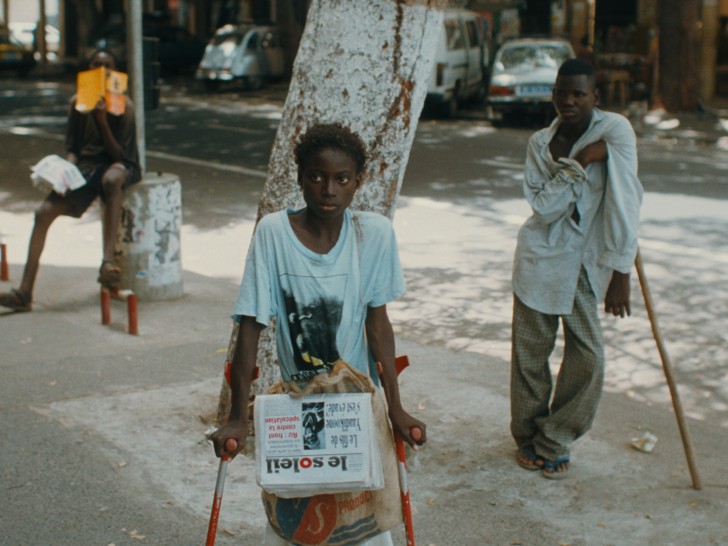
The Little Girl Who Sold the Sun
Le Franc
$5 Weekend Matinee Admission or Free with Cambridge Public Library Card
Mambéty describes what would be his final film as “a hymn to the courage of street children,” but like all of his works, it is also a hymn to Senegal, to post-colonial Africa and to resourceful visionaries like the courageous girl of the title. Undaunted by poverty or handicap, the young Sili Laam leaves her blind grandmother begging in the street to seek out a better existence for them both. As the only female newspaper seller, she encounters constant obstacles along the way, yet reacts by simply standing up for herself and others. Nonchalantly fighting for equality and justice, Sili’s courage and resilience are depicted with a mix of joy and hardship, but no saccharine. The second in his unfinished Tales of Little People trilogy after Le Franc, this film—like Hyenas before it—mixes realism with allegory, taking a “small” story and making it as powerful as the sun.
In “a time of uncertainty”—quoting the radio announcement inviting people impoverished by the CFA franc’s devaluation to try their luck playing the lottery—Mambéty went beyond mere observation and elevated his anarchic and rebellious vision by creating the antisocial character of Marigo. With his easy-going walk and Chaplinesque clothes, Marigo immediately expresses his irreverent nature: he spits on the floor of his shack and blows his nose on a towel like an unruly teenager. His comic nature turns into an art like in Chaplin’s silent films, almost without words. Marigo speaks through facial expressions, and he does not give in to the bad luck that seems to chase him. Like Chaplin, there is always a glimpse of optimism: the strength of Mambéty’s characters lies in their dignity, courage and rejection of fatalism and resignation. They are parables of hope in contrast with Afro-pessimism, the lack of faith in the continent’s capability to develop, which was emerging at that same time. – Alessandra Speciale















